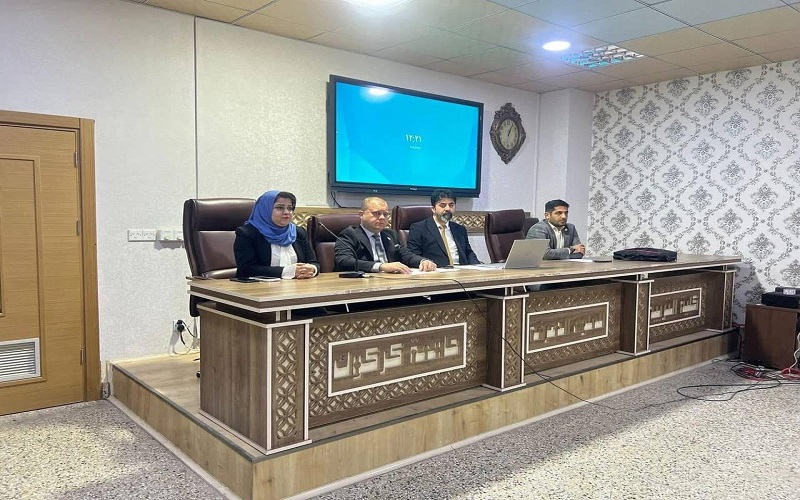Under the patronage of the President of the University of Kirkuk, Prof. Dr. Imran Jamal Hassan, and under the supervision of the Dean of the College of Law and Political Science, Assistant Professor Dr. Murad Saeb Mahmoud, and coinciding with the Iraqi Legislation Day, the College of Law and Political Science, Continuing Education Division, in cooperation with the Legal Division and the Legal Research Unit, held a scientific symposium on the land of the two rivers, the cradle of civilizations and the birthplace of legislation, in Hammurabi Hall in the college.

The scientific symposium, which was held under the chairmanship of the Dean of the College, Prof. Dr. Talat Jihad Laji, Prof. Dr. Fawzi Hussein Salman, Prof. Dr. Ahmed Khorshid Hamidi, Prof. Dr. Majid Najm Eidan, and Assistant Professor Dr. Saadoun Hasib Arif, discussed the civilization of the Valley of the Two Rivers, which was established about 4000 years BC. The history of the Mesopotamian civilization dates back to prehistoric times, where this civilization arose between the Tigris and Euphrates rivers, and interest was given to agriculture, animal husbandry, building the social structure of the family, developing culture and writing in Iraq, and developing knowledge about astronomy and mathematics, and creating the oldest legal document consisting of laws written on stone and clay tablets, and building temples. The most important cities established under the Mesopotamian civilization are Sumer, Akkad, Assyria, and Babylon.
Among the most important laws issued in Mesopotamia are the Lipit-Ishtar Law, the Ur-Nammu Law, and the Hammurabi Law. These laws were issued to address all topics related to human rights approved by the Universal Declaration of Human Rights, which prohibits tampering with the human body. These laws include those related to litigation procedures, crimes of money, land, real estate, trade, personal status, workers' wages, and many legal articles that address various human affairs.
 Arabic
Arabic  English
English 
